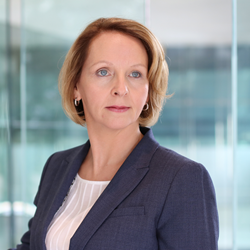
Perhaps it’s down to the pace of ExxonMobil’s remarkable offshore exploration success in neighbouring Guyana, but some observers seem spooked when drilling efforts in Suriname prove fruitless. “Offshore oil remains a potential for the country but markets are questioning feasibility after last year’s Araku-1 well disappointment,” says Nathalie Marshik, head of sovereign research at Oppenheimer. Indeed, after Tullow failed to find oil at Araku, Kosmos abandoned its Anapai-1A well in June after an unsuccessful drill.
Yet Rudolf Elias, CEO of Suriname’s oil company Staatsolie, is “even more confident than a year ago” that there will be offshore oil discoverie s in Suriname. Oil industry experts appear to back him.
“Exploration is a journey, not an event,” says Julie Wilson, director, global exploration at Wood Mackenzie. “Each well — successful or not — brings new information about the petroleum system that helps explorers better understand it.”
Kosmos and Tullow continuing to explore in Suriname means they were “encouraged” by what they found in their first wells, she says.
When Tullow plugged the Araku well, it highlighted that the geological insights and seismic data it had gained from the drill had “de-risked deeper plays” in the group’s acreage. And the company described Araku as an “ambitious wildcat exploration”.
Wilson says explorers have to find the “sweet spot” where all elements of the petroleum system are working together. “The success in Guyana demonstrates that the sweet spots in this basin can be giant-sized, so I would not yet write off Suriname offshore exploration,” she says.
Elaine Reynolds, oil analyst at Edison Investment Research, says it is “not too concerning” that there has not yet been a discovery in Suriname.
First of all, says Reynolds, the number of dry wells is small compared to the size of the basin. And while some drills have found reservoirs but not hydrocarbons, others evidence hydrocarbons but no reservoirs. This suggests there will be a successful drill at some point.
When Kosmos announced the dry well at Anapai, CEO Andrew Inglis said the company was in the “early stages” of exploring the “emerging” basins. Kosmos’ next Surinamese well, Pontoenoe, is exciting as it is the first time a company will drill above the same source rock that produced Exxon’s massive “Liza” discovery in Guyana.
“It looks promising because it has the same feeder system that is seen in Liza, and it is notable that Hess, which is a partner in the Liza block, has come into this block,” says Reynolds at Edison.
Kosmos is giving Pontoenoe a one-in-four to one-in-five chance of success, says Reynolds, but even if it is not successful, “there are multiple further prospect options on the block”.
As Elias says: “We have a lot to learn and are still only scratching the surface of Suriname’s potential.”
GOLDEN BOY
Yet for all the excitement over oil, Marshik points out that, even if a company struck oil tomorrow, it would take several years to get it out the ground, meaning limited near-term economic benefits.
However, the gold sector goes from strength to strength and is already providing important revenues. The government is earning royalties through its stake in Newmont’s Merian mine, which came on line in 2016. There is further excitement from Canada’s Iamgold, which has been operating the Rosebel mine since 2004.
In September Iamgold confirmed that its recent drilling at the nearby Saramacca site — where it plans to start mining by the second half of 2019 — would increase the company’s reserves in Suriname by 1m ounces. The additional reserves increase Rosebel’s life by five years to 2033, and the government, which holds a 30% stake in Iamgold’s expansion, estimates that Saramacca holds proven reserves of $1.9bn at today’s prices.
Economic benefits from both Merian and
Saramacca are imminent. Newmont has only been paying royalties so far on its Merian investment, because its contract allows accelerated capital depreciation, in other words repaying the capital invested before paying taxes.
But it is likely to start paying income tax from 2020, while the government should also be able to collect royalties and income tax from the Saramacca mine — which required lower capital investment than Merian — in 2020.
Newmont’s delay in paying income taxes highlights just how market-friendly Suriname’s gold mining contracts are, says Kelli Bissett-Tom, director for Latin American sovereigns at Fitch Ratings. Accelerated depreciation incurs short-term costs for the government — in balance of payments, slower rebuilding of international reserves, and the foregoing of tax revenues.
But Suriname’s attitude is also a factor in attracting investment from so many international companies. “There is an absence of natural resource nationalism in Suriname and greater contract certainty for foreign investors,” says Bissett-Tom. “Once a contract is agreed with the government, it passes into law, rendering a very stable agreement.”
This could be key in unlocking Surinam’s estimated 5m kg of unproven gold reserves.